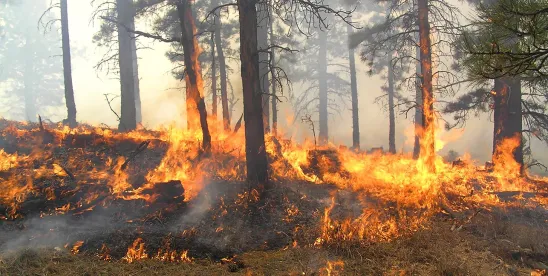Employers may understand the workplace safety concerns surrounding wildfires, but there are other employment issues that employers should consider in the event of a wildfire near the worksite.
The California Labor Commissioner’s Office has FAQs pertaining to important employment issues that employers should consider when their employees or worksite are impacted by wildfires.
Regular Rate of Compensation
A major consideration is handling compensation to employees impacted by wildfires. If the wildfire causes a work stoppage at the worksite, employees may be entitled to compensation if they are required to wait on-premises or at the worksite for work to resume. On-call, idle, or standby time must be fully compensated, even if an employee is not performing any work because they are still subject to the employer’s control. As such, employees must continue to be paid their regular rate of compensation, including overtime pay, if applicable. Similarly, if employees are told to go home and return later in the same day, they may be entitled to premium pay such as split shift premiums.
Standby Time
Similarly, employers who permit employees to leave the premises, but are subject to restrictions on their movement or activities may need to pay employees for the time spent away from the premises, because such time can be considered compensable “standby” time. As an example, employees may be considered on standby if they are required to stay within a two-mile radius from the worksite, within a 10-minute drive from the wildfire site, or be responsive to calls within a short amount of time.
Reporting Time Pay
Typically, California mandates reporting time pay, which requires employers to pay employees a certain amount for “reporting time,” even if an employee is sent home so long as the employee shows up to their regularly scheduled work. However, an exception exists for certain interruptions. These include interruptions that are caused outside of the control of the employer, for example, due to a wildfire, or other instances of uncontrollable natural forces. As a result, employers may not be required to compensate employees due to work stoppage caused by a wildfire.
Exempt Employees
An “exempt” employee may be entitled to recover wages for the full week if that employee works at any point in that week. For example, an exempt worker who shows up for half a day on Monday may be compensated for the rest of the week from Tuesday to Friday, even if there is a work stoppage.
Alternative Workweek Schedule
Employers on bona fide alternative workweek (AWW) arrangements must consider how changing employees’ hours or days of work may affect their compensation, before rescheduling employees. Employers may be required to pay AWW employees for work at time and a half. Employers who send AWW workers home due to a wildfire and require that they return on a non-regularly scheduled workday may be required to pay one and a half times their regular salary for the first eight hours. Further, any hours worked over eight would be paid at two times the employees’ regular rate of pay. Employers should be wary of the costs associated with canceling or reassigning employee work schedules.
Paid Time Off
Moreover, employees who are eligible for paid vacation or paid time off can elect to use their time if work must cease due to wildfire and they are sent home. However, employees may only use paid sick leave if it is for covered reasons such as for, care, or treatment of an existing health condition or preventive care.





 />i
/>i
